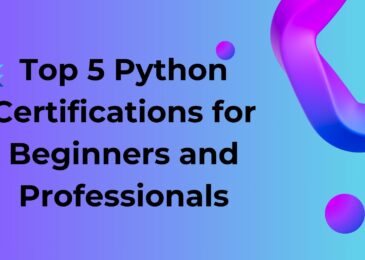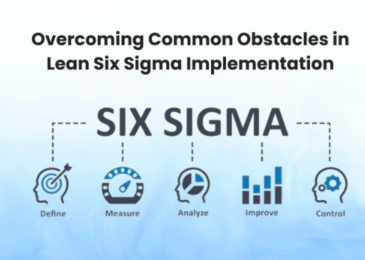Today, tons of data are generated every single day. Companies are keen on generating, maintaining, and using this data efficiently. This has increased the demand for professionals who are experts in Big Data.
Big Data is the large volume of data that is examined for discovering association, patterns, and trends. When such a large quantity of data is generated, it requires skilled professionals for interpreting and analyzing data in order to make better decisions. Now is the right time for starting your career in Big Data as the scope of the field is drastically increasing. Here are a few of the job opportunities you have after pursuing the Big Data Analytics course:
- Machine Learning Engineer
This is a specialist role that is still in the infancy stage. As a Machine Learning engineer, you can work in large tech companies that provide data-based services. Your job will be collaborating with the data science team for building programs and creating algorithms that deliver data-driven services and products. Through this, machines become capable of making decisions, enhancing user experience, and taking action with no human interference. Personalized news feeds and self-driving cars are a few examples of this. You need to have a background in computer science, mathematics or statistics to be an ML engineer.
- Data Architect
The role of a Data architect involves using extensive programming tools for designing secure data frameworks that are used for managing large electronic databases. It is a technical role where you will have to ensure that the data is relevant, accessible, and accurate. Employees should be able to access the information like marketing details and financial records, whenever and wherever they need. To work as a Data Architect, you must have an eye for detail, superior analytical skills, and sophisticated design skills.
- Statisticians
Statisticians are responsible for compiling, analyzing, and evaluating quantitative information from experiments and surveys for helping the organization improve its operational standards. They also provide practical solutions to the issues faced by the business. In order to work in this field, you must have relevant qualifications as well as industry experience.
- Data Analyst
Data Analysts are known to be highly analytical and inquisitive. Every business and organization collect data in the form of sales figures, market research, transportation costs, or logistics. As a Data Analyst, it will be your responsibility to collect and evaluate the data and provide clear insights on how the company can make better decisions and improve its business strategy.
- Chief Technology Officer (CTO)
This is an executive-level position for which you must have an expert level of knowledge about the different technological trends. You must also know how to implement the technology in creating business strategies. CTOs have high-level strategic thinking skills and can conduct technical analysis for ensuring that their organization is standing out in today’s competitive marketplace.
To work in this role, you must have strong organizational and leadership skills. You will be leading your team and figuring out what technologies are best for ensuring positive user experience and efficiency in all areas of the business.
- Chief Data Officer
Only 12% of the Fortune 1000 companies had this position in 2012. In just a few years, this percentage has increased to 67.9%. As a Chief Data Officer, you will be responsible for overseeing the data of the organization and generating business value from it. This can be the most valuable asset of the organization.
To get this role, you should be an expert in IT and must be business-focused. Having relevant experience in statisticians and mathematics is also considered to be a plus.
- Application Architect
This is considered to be a fast-paced role. As an Application Architect, you must have an excellent technical vision, strong analytical, critical thinking, and problem-solving skills, and the ability to provide valuable insights. You should also know how to create solutions for software development along with their maintenance.
Your daily responsibility will include carrying out a wide range of tasks like creating new applications, improving the, developing prototypes, creating technical documents, and running software tests for application software.
For this role, you must have expertise in a programming language as well as architecture design skills. With a Big Data Analytics course, you will have the ability to build products, processes, and services and solve user problems. During the training, you will learn how to use advanced analytics for getting relevant data analytics.
- Project Manager
It is the responsibility of a Project Manager to use their data-driven business acumen for planning, budgeting, and overseeing the projects of the organization. You must be organized and have excellent critical-thinking and leadership skills.
- Market Research Analyst
As a Market Research Analyst, you will be responsible for compiling complex reports, surveys, opinion polls, and spreadsheets. You will be evaluating significant market intelligence to help the organizations market their services and products effectively. This data can include consumer spending habits, demographics, needs, preferences, interests, and sales trends.
To work in this role, you must have a strong understanding of statistical techniques and software for monitoring and forecasting the effectiveness of business strategies.
- Analytics Translator
The organizations have started to use advanced technologies such as Machine Learning and Artificial Intelligence for leveraging success and improving business efficiency. What they need is an Analytics translator who can fill in the gap between the technology and business team of the organization. Usually, both these teams are at the opposite sides of the spectrum that could lead to miscommunications, confusion, and even massive errors.
It is your responsibility to ensure that the teams are focused on the values and objectives of the organizations.
- Data Scientist
This is one of the popular job opportunities you will have. The role of a Data Scientist involves using algorithms, statistics, machine learning, and artificial intelligence tools for mining raw and complex data from different sources. This data is then transformed into transparent and meaningful information that can be used by the organization for improving its operations and business strategy.
So, if you want to take advantage of the multitude of job opportunities Big Data has to offer, enroll in a Big Data Analytics course.



![Working Method To Fix [pii_email_e5cd1a180e1ac67a7d0e] Error](https://www.techiestate.com/wp-content/uploads/2020/09/pii_email_e5cd1a180e1ac67a7d0e-100x100.jpg)


